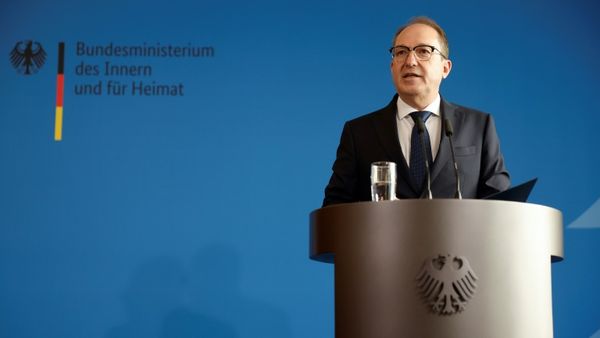
Tesla (TSLA) CEO Elon Musk is likely to face a supportive audience at Wednesday's 'Investor Day' event at the carmaker's Texas gigafactory as he unveils details of the group's third "Master Plan" for global EV dominance.
After all, the world's richest man has built, in some respects by sheer force of will, the world's most valuable carmaker, marshalled an astonishing 2023 comeback for Tesla stock despite myriad business, personal and political distractions and laid down a gauntlet that automakers from Tokyo to Detroit have been forced to either emulate with billions of investments and wholesale changes to their business and production models.
But he's also made a host of promises -- from robotaxis scuttling around U.S. cities to Cybertrucks that challenge the transportation sector's hegemony to self-driving cars that would allow passengers to sleep their way from New York to Los Angeles -- that have failed to materialize.
The Tesla faithful have been largely indulgent with Musk's ambitious visions, mostly because he's almost always delivered on the issues that truly matter: growth and profits.
And those two issues, despite the long list of topics expected to be addressed by Musk when he delivers a third version of Tesla's "Master Plan" for the future of the automaker later today in Austin, are likely to capture most of the market's attention.
"The Street, auto industry, and Tesla community is laser focused on what is next for Tesla over the coming years with Austin playing a major role in the company's future production," said longtime Tesla analyst Dan Ives.
"With demand that is 2x production coming out of the gates for 2023 and a 1.8 million bogey in deliveries this year, this will be a key update to gauge the current macro/demand environment post Model Y/3 price cuts and get a closer look into Tesla’s operations and ability to meet demand seen for its vehicles globally over the coming years," Ives noted.
EV Demand Outpacing Production
Musk alluded to that demand when he last spoke to investors in January following the group's stronger-than-expected fourth quarter earnings, telling analysts that EV orders were "the strongest in our history" and were nearly twice the rate of Tesla's global production, adding that without disruption, the company could deliver 2 million cars this year.
The group's stated forecast, however, calls for a delivery target of 1.8 million, a 37% increase from last year's levels that clashes with its 50% forecast but comes amid what Musk predicted will be a "pretty difficult recession this year."
Squaring that circle will be crucial to defending the stock's 66% year-to-date surge, particularly given the fact that EV rivals in China such as BYD are biting into Tesla's market share and Ford F and General Motors GM have staked their near-term futures on winning domestic market dominance.
Investors are also expecting updates on the long-delayed Cybertruck, first unveiled to great fanfare in 2019, delivery estimates for the Tesla Semi, plans for scaling-up battery production and the location of the group's next gigafactory - which was upstaged earlier this week by a statement from Mexico's President Andres Manuel Lopez Obrador.
A longer-term ambition, but one that might be crucial to Tesla's ultimate success, will be the group's plans to build a next-generation platform that will produce a lower-price car that will lead to higher penetration rates in major global economies -something Ives described as the 'Holy Grail' of EV automaking and crucial to Tesla's plans to build 20 million vehicles by 2030.
"Price really matters for EV sales," Musk told investors in January. "I think there's just a vast number of people that want to buy a Tesla car but can't afford it."
Battery Production Crucial to Lower EV Prices
Musk has said battery production, including the sourcing of lithium, remains key to any attempt at scaling low-cost EV production, but has said he want to develop a so-called 'Model 2' Tesla that could be priced in the region of $25,000.
"With EV tax credits abound and competition coming from all angles lower price points are a major focus for the Street looking ahead with the Tesla story," Ives said.
A more near-term focus, however, is also related to pricing but relates to Tesla's profit margins, which were clipped last year as Musk enacted cuts in both the U.S. and China in order to defend market share.
Those price cuts narrowed Tesla's gross automotive profit margin to 25.9% over the three months ending in December, the lowest in two years and a big decline from the 27.9% figure recorded over the third quarter.
Musk put the margins pressures down to battery production costs, the ramp-up of factories in Berlin and Texas, higher commodity costs and price cuts.
Some of those cuts were reversed earlier this year, however, after the U.S. government lifted the threshold for crossover vehicles to eligible for climate-linked tax credits.
Prior guidance from the Treasury, based on the $430 billion Inflation Reduction Act bill approved by lawmakers in August, had put the price threshold for all vehicles at $55,000, basing its decision on so-called 'CAFE standards from the Environmental Protection Agency.
The new $80,000 threshold, however, is based on "consumer-facing EPA Fuel Economy Labeling standard", the Treasury said, a change that will "allow crossover vehicles that share similar features to be treated consistently."
Tesla Stock Higher This Year, But South of 2022 Levels
Tesla shares were marked 2.8% lower in early trading Wednesday to change hands at $199.88 each, a move that would trim the stock's year-to-date advance to around 63% but still leave it well shy of the $381 level reached in April when Musk made his first public comments on purchasing Twitter.
The deal, which was contested by Musk but ultimately forced through just days prior to a hearing in the Delaware Chancery, priced the social media group at $44 billion.
Musk was also forced to sell large chunks of his Tesla shares over the past year to satisfy both U.S. tax liabilities and, ostensibly, his own commitment to the overall purchase of Twitter.
Musk borrowed around $13 billion from the banking group that included a $3 billion chunk of unsecured debt that carries and annual interest rate of 11.75%, Bloomberg reported earlier this year. The rest of the debt package is comprised of $6.5 billion in term loans and $3 billion in secured bonds.
Musk sold around $40 billion of Tesla shares last year, including 22 million over the second week of December, paring his stake in the group to around 13.4%, or $46.9 billion.
Short interest in Tesla shares remains elevated, as well, with bets around the group pegged at around $9.6 billion, according to recent data from S3 Partners, a figure that represents around 3% of the group's outstanding shares.







